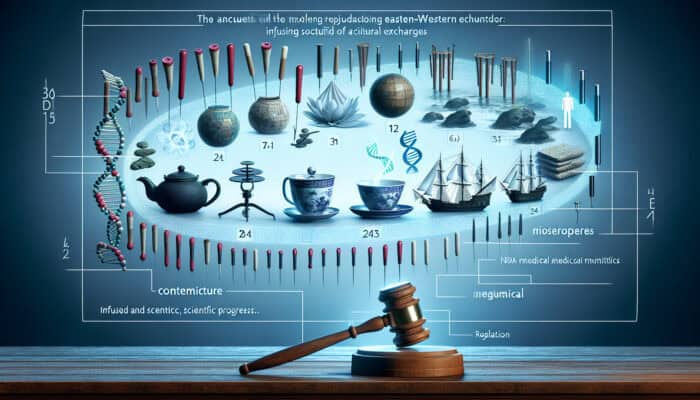Develop a Strategic Action Plan to Effectively Consolidate Your Rent Arrears
For many tenants, the thought of falling behind on rent payments can provoke significant anxiety and stress. This challenging situation often leads to a mix of emotional turmoil and financial pressure, making the path to recovery feel overwhelming. However, grasping how to consolidate rent arrears can illuminate a clear and manageable route to regain financial stability. Consolidation isn’t just a financial tactic; it represents a crucial moment to regain control over your finances and restore your peace of mind. This comprehensive guide explores the vital components of consolidating rent arrears, equipping you with essential insights and actionable strategies to confidently navigate this difficult terrain.
Essential Principles of Rent Arrears Consolidation Every Tenant Must Understand

Understanding the Concept of Rent Arrears Consolidation and Its Significance for Tenants
At its essence, rent arrears consolidation involves combining outstanding rent payments into a single, more manageable repayment framework. This method is especially important for tenants who find themselves overwhelmed by multiple overdue payments and the imminent threat of eviction. By consolidating these debts, tenants can simplify their financial obligations, making it significantly easier to fulfill their responsibilities. This strategic approach not only reduces stress but also charts a course toward a more secure financial future.
It is crucial to understand that consolidation is not a generic solution; it requires a tailored approach that considers individual circumstances. The journey begins with a comprehensive assessment of the total amount owed and the specific terms outlined by the landlord. This clarity is essential, as it shapes future negotiations and informs the strategies that will be implemented.
Understanding the Legal Landscape of Rent Arrears Consolidation
Having a solid understanding of the legal aspects related to rent arrears consolidation is vital for tenants. It is imperative for tenants to be well-informed about their rights and the obligations of landlords. In the UK, various laws exist to protect tenants from unfair eviction and harassment. For example, the Housing Act 1988 establishes guidelines regarding tenancy agreements and the eviction process, providing a measure of security for tenants.
When falling behind on rent, the first and most important step is to initiate an open and honest dialogue with the landlord about the situation. Establishing clear communication channels is critical; landlords are often more open to negotiation than tenants might expect. A solid understanding of the legal framework can empower tenants, equipping them with the confidence to propose feasible solutions to landlords during negotiations.
Evaluating the Financial Consequences of Consolidating Rent Arrears

The process of consolidating rent arrears carries substantial financial implications that should not be underestimated. While the immediate result may lead to a more manageable payment schedule, it is imperative to consider the long-term effects on one’s overall financial well-being. For instance, missed rent payments can have a detrimental impact on credit scores, limiting future rental opportunities and access to various credit resources.
Before embarking on the consolidation journey, it is wise to conduct a thorough financial assessment. This evaluation should include a detailed examination of income, expenses, and existing debts, providing a comprehensive overview of one’s financial situation. Understanding these dynamics can lead to more effective negotiations with landlords and assist in creating a realistic repayment plan.
Effective Strategies for Successfully Consolidating Rent Arrears
Negotiation Techniques to Secure Favorable Outcomes
The skill of negotiation is crucial when it comes to how to consolidate rent arrears. Clear and effective communication is essential; tenants should approach landlords with a well-prepared proposal that outlines a feasible repayment plan. By demonstrating a sincere commitment to resolving the issue, tenants can build goodwill and encourage cooperation from landlords.
During negotiations, it can be advantageous to highlight any extenuating circumstances that led to the accumulation of arrears. Landlords may display a greater understanding toward situations involving job loss, medical issues, or unexpected hardships. Additionally, if feasible, suggesting a larger lump-sum payment could motivate landlords to agree to more favorable terms.
Designing a Comprehensive and Realistic Payment Plan

Creating a well-structured payment plan is a critical component of any effective consolidation strategy. This process entails negotiating a realistic timeline that accommodates manageable payments over a specified period. Transparency is key; tenants should be candid about their financial capabilities and propose a plan that accurately reflects this reality.
A thoughtfully crafted payment plan can empower tenants to regain their financial stability and rebuild trust with their landlords. It is advisable to document all agreements in writing to ensure that both parties have a clear understanding of the terms. This practice not only safeguards the tenant’s interests but also serves as a reference for any future discussions.
Exploring Debt Consolidation Loans as a Practical Solution
For some tenants, debt consolidation loans can offer a practical approach to addressing rent arrears. These loans allow individuals to merge multiple debts into a single payment, often at lower interest rates. However, this option must be approached with careful consideration and thorough evaluation.
It is crucial to meticulously examine the terms of any loan to ensure that the monthly payments are manageable within one’s financial limitations. Consulting with a financial advisor before proceeding can be highly beneficial, as they can provide valuable insights into the potential benefits and drawbacks of debt consolidation loans.
Implementing Smart Budgeting Techniques for Effective Rent Arrears Management
Effective budgeting is an essential tool for managing rent arrears. Tenants should develop a detailed budget that accounts for all sources of income and expenses, while also identifying areas where savings can be realized. This financial clarity not only helps prioritize rent payments but also fosters a sense of control over one’s financial situation.
To enhance your budgeting efforts, consider utilizing budgeting applications that can monitor spending and provide timely reminders for upcoming payments. By adopting a disciplined budgeting approach, tenants can gradually decrease their arrears while ensuring they continue to meet their ongoing rental obligations.
Common Challenges Faced During the Rent Arrears Consolidation Process
Overcoming Landlord Resistance in Negotiation Scenarios
One of the most significant obstacles in consolidating rent arrears is encountering resistance from landlords. Some landlords may be hesitant to negotiate due to fears of financial losses or the potential for prolonged legal disputes. Understanding this perspective can help tenants approach negotiations empathetically, framing their proposals to highlight mutual benefits.
Building rapport with landlords can also prove beneficial. Regular updates and communication about the tenant’s financial situation can foster trust and increase the likelihood that landlords will consider reasonable proposals.
The Negative Impact of Rent Arrears on Credit Scores
The act of consolidating rent arrears can have lasting effects on one’s credit score. Late payments and defaults can remain on credit reports for several years, negatively affecting future credit applications and rental opportunities. Tenants should actively monitor their credit scores and recognize the implications of their financial decisions.
Restoring a credit score after consolidating arrears necessitates a commitment to timely payments and prudent financial practices. Implementing strategies to improve one’s credit profile can pave the way for future financial opportunities, including more favorable rental agreements and financing options.
Managing Financial Pressure During the Consolidation Process
The financial burden associated with rent arrears can be exacerbated by the stress of managing repayments. As tenants work to consolidate their arrears, it is vital to maintain a realistic perspective on their financial capabilities. Overcommitting to repayment arrangements can lead to additional financial strain, creating a vicious cycle of debt that is challenging to escape.
Establishing a support network, whether through friends, family, or financial advisors, can provide invaluable emotional and practical assistance during this trying period. Open discussions about financial challenges can yield innovative solutions and foster a sense of community.
Navigating Legal Challenges in Rent Arrears Consolidation
Dealing with the legal complexities related to rent arrears consolidation can be intimidating. Tenants may face eviction proceedings or court actions if they do not address their arrears promptly. Understanding one’s rights and seeking legal counsel when necessary is crucial for protection against unfair practices.
Engaging with legal aid services or tenant advocacy organizations can provide essential resources and support. These groups can offer guidance on the legal process and assist tenants in effectively negotiating with landlords.
Inspirational Success Stories and Case Studies in Rent Arrears Consolidation
Real-Life Success Stories of Tenants Who Overcame Rent Arrears
Accounts of tenants who have successfully consolidated their rent arrears serve as compelling reminders of the potential for recovery. Many individuals have faced significant financial hurdles only to emerge more resilient and financially informed. These success stories often underscore the importance of proactive communication with landlords and the implementation of effective budgeting practices.
For instance, one tenant who fell behind due to unexpected medical expenses reached out to their landlord to discuss a feasible repayment plan. By demonstrating a commitment to resolving the issue and proposing a structured payment strategy, the tenant successfully negotiated a temporary rent reduction while stabilizing their finances.
Gaining Understanding of the Landlord’s Perspective
Recognizing the landlord’s perspective can provide valuable insights into the intricacies of rent arrears consolidation. Many landlords are individual property owners who depend on rental income to fulfill their financial obligations. Through open and honest dialogue, some landlords have shown a willingness to collaborate with tenants experiencing legitimate financial hardship.
Case studies indicate that when landlords are approached with empathy and a clear repayment plan, they are often more inclined to cooperate. This mutual understanding can foster sustainable solutions that benefit both parties involved.
Professional Insights from Financial Advisors on the Consolidation Process
Financial advisors are instrumental in guiding tenants through the complexities of the consolidation process. They can offer customized strategies for managing rent arrears, assisting clients in developing effective payment plans and budgeting techniques. Their expertise empowers tenants to take charge of their financial futures.
Advisors often stress the importance of financial literacy, encouraging tenants to educate themselves about their rights and available resources. Additionally, they emphasize the significance of maintaining open communication with landlords, as transparency can facilitate smoother negotiations.
Critical Tools and Resources for Effective Rent Arrears Consolidation
Using Budgeting Applications for Enhanced Financial Oversight
In today’s digital age, a plethora of budgeting applications are available to help tenants manage their finances effectively. These tools assist in tracking expenses, setting savings goals, and providing timely reminders for upcoming payments. Popular apps such as Mint, YNAB (You Need A Budget), and PocketGuard can be invaluable in creating a clear financial overview.
By utilizing these applications, tenants can take proactive steps in managing their finances, enabling them to allocate funds toward rent payments more efficiently and effectively.
Accessing Legal Aid Services for Essential Support
For tenants facing legal challenges related to rent arrears consolidation, legal aid services can provide critical assistance. These organizations offer free or low-cost legal support, helping tenants understand their rights and navigate the complexities of landlord-tenant law.
Engaging with legal aid can significantly influence how tenants approach their situations. With professional guidance, tenants can negotiate more effectively and ensure their rights are upheld throughout the entire consolidation process.
The Benefits of Financial Counseling for Efficient Debt Management
Financial counseling represents another invaluable resource for tenants grappling with arrears. Professional counselors can provide personalized advice and strategies for managing debt, budgeting, and credit restoration. By collaborating with a financial advisor, tenants can develop a comprehensive plan tailored to their specific needs.
Counseling also offers emotional support, helping tenants cope with the stress linked to financial challenges. The insights gained from these sessions can empower individuals to take ownership of their financial futures.
Emerging Trends Influencing Rent Arrears Management
The Transformative Role of Technology in Rent Management
As technology advances, its impact on rent arrears management is becoming increasingly evident. New digital platforms that improve communication between landlords and tenants are streamlining negotiations and payment tracking processes.
Furthermore, automated payment systems can assist tenants in staying current with their rental obligations, reducing the likelihood of missed payments. These technological innovations are reshaping the dynamics between tenants and landlords, promoting a more collaborative approach to rent management.
Staying Informed About Policy Changes and Their Effects
Keeping abreast of policy changes is crucial for both tenants and landlords. Recent discussions regarding housing policy reforms have underscored the need for improved protections for tenants facing financial difficulties. Being informed about these changes empowers tenants with the knowledge necessary to advocate for their rights effectively.
As policies evolve, tenants should remain vigilant and proactive in seeking information about their rights and available resources. Engaging with tenant advocacy groups can provide valuable insights into upcoming changes that could influence rent arrears consolidation.
Economic Factors Influencing Rent Arrears Management
Economic conditions significantly affect the landscape of rent arrears management. Fluctuations in employment rates, inflation, and housing market trends can all impact a tenant’s ability to fulfill their rental obligations. Understanding these factors can prepare tenants for potential financial challenges.
Proactive financial planning, particularly during economic downturns, is essential. Tenants should consider diversifying their income sources and building savings as a buffer against unexpected financial pressures.
Frequently Asked Questions Regarding Rent Arrears Consolidation
What Exactly Is Rent Arrears Consolidation and How Does It Function?
A comprehensive definition of rent arrears consolidation involves merging outstanding rent payments into a manageable plan designed to simplify repayment and alleviate financial stress.
What Steps Should I Follow to Begin the Consolidation Process?
To kickstart consolidating your rent arrears, evaluate your total debts, engage in discussions with your landlord, and propose a feasible repayment plan that reflects your financial reality.
What Risks Should I Be Aware Of When Consolidating My Arrears?
Consolidating rent arrears might negatively impact your credit score and could lead to additional financial strain if the repayment plan is not sustainable. Being fully aware of these risks is crucial prior to proceeding.
Is It Possible to Manage This Without Legal Assistance?
Yes, it is feasible to handle rent arrears consolidation without legal support; however, consulting with a lawyer or financial advisor can provide valuable guidance and help safeguard your rights.
What Should I Do If My Landlord Refuses to Negotiate?
If your landlord is unwilling to negotiate, consider seeking legal advice or assistance from tenant advocacy organizations that can help mediate the situation and explore alternative solutions.
How Long Does the Consolidation Process Generally Take?
The length of the consolidation process varies based on individual circumstances, including the total amount owed and the willingness of both parties to negotiate effectively.
Are There Government Programs That Offer Assistance with Rent Arrears?
Yes, several government programs provide financial aid to tenants struggling with rent arrears. It is advisable to research local resources and eligibility requirements to explore available options.
What Are the Consequences If I Fail to Consolidate My Rent Arrears?
Failing to consolidate rent arrears may result in eviction proceedings, adverse effects on your credit score, and increased financial stress. It is imperative to address arrears as promptly as possible.
Can I Consolidate Other Types of Debt Alongside My Rent Arrears?
Yes, many tenants opt to consolidate various debts, including rent arrears, to simplify their financial obligations. However, it is vital to create a realistic repayment plan.
What Should I Factor into My Budget for Rent Payments?
Your budget for rent repayment should encompass all income sources, necessary expenses, and a distinct allocation for rent payments to ensure that you can meet your obligations while managing other costs.
Connect with us on Facebook!
This Article Was First Found On: https://www.debtconsolidationloans.co.uk
The Article Rent Arrears Consolidation: Essential Guide for Tenants Was Found On https://limitsofstrategy.com
References:
https://limitsofstrategy.com/rent-arrears-consolidation-essential-guide-for-tenants/




The topic of rent arrears consolidation resonates deeply with many of us. Having navigated a similar financial landscape, I found that developing a structured plan not only alleviated some of the stress but also empowered me to take proactive steps. The emotional toll is significant; it often feels like you’re caught in a cycle of anxiety and uncertainty.
Your insights on developing a strategic action plan to consolidate rent arrears resonate deeply, especially considering the emotional weight that financial instability can carry for many tenants. It’s crucial to recognize that the process of addressing rent arrears is not merely about the financial aspects; it is intrinsic to our overall sense of well-being and stability.
You bring up an important point about the emotional weight of financial instability, particularly when it comes to rent arrears. Many people underestimate how much anxiety and uncertainty can affect a tenant’s overall well-being. When financial obligations become overwhelming, it’s not just the numbers on a spreadsheet that matter—it affects relationships, mental health, and the everyday lives of those impacted.